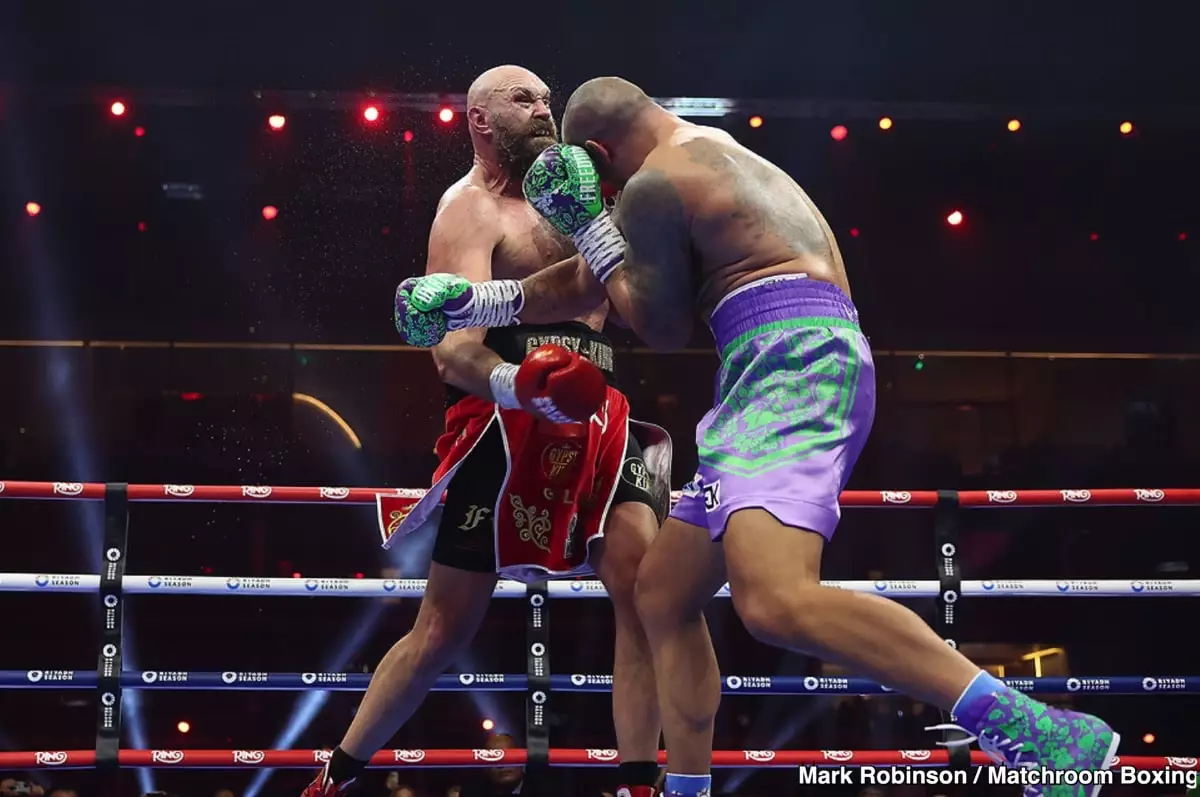Tyson Fury’s recent defeat to Oleksandr Usyk marks a pivotal moment in the heavyweight boxing landscape. With a history of sensational victories and remarkable comebacks, Fury’s fall from grace raises crucial questions not only about his boxing career but also about his legacy in the sport. In this article, we will delve deep into the implications of Fury’s defeat, the potential for his future in boxing, and how the boxing community might remember him.
Fury’s exit from the ring after a second loss to Usyk was not just a physical retreat but a symbolic acknowledgment of a harsh reality. Coming into the match with a reputation as one of the greatest heavyweights of recent times, his performance fell short against a fighter who demonstrated superior skill, strategy, and determination. This defeat was not simply the loss of a match but a moment that prompted introspection about Fury’s place in boxing history.
Fury’s reaction post-fight, filled with allegations of being wronged, seemed to reflect an unwillingness to confront the reality of his situation. Disputing the results can be seen as a defense mechanism for an athlete grappling with the finality of defeat. However, such claims often undermine credibility, especially when faced with the clear dominance exhibited by Usyk in both bouts. At 36, Fury’s options are dwindling, and his attempts to rationalize these losses could alienate fans and observers alike.
Looking ahead, one of the most pressing questions is whether Fury will continue to pursue a career in the ring. With losses to Usyk now solidified in record books, the prospect of a trilogy appears unlikely. The question then arises: what fights remain enticing enough to revive Fury’s motivation? Rumors of a massive showdown against Anthony Joshua have floated around, yet the concept of a “Battle of the Losers” — where both boxers face significant question marks about their recent performances — casts a shadow over its appeal.
Fury’s previous boastful declarations of being the greatest heavyweight ever may feel hollow now. Can he risk further humiliation by entering the ring with Joshua, only to face another potential loss? The fear of tarnishing his already bruised reputation could lead him to consider retirement — a stark contrast to the larger-than-life persona he has crafted over the years.
Defeating notable fighters like Wladimir Klitschko and Deontay Wilder brought much acclaim to Fury, yet the weight of his defeats risks overshadowing those achievements. Critics and fans alike will ponder his legacy, asking if he did enough to merit a place alongside legends such as Muhammad Ali or Lennox Lewis. While he carved out a remarkable niche in boxing’s history, seeing him as a true great requires scrutiny beyond titles and occasional triumphs.
Moreover, the fact that Fury was bested twice by Usyk raises undeniable questions about his skill set when faced with elite-level competition. Boxing historians may ultimately conclude that while he was gifted and undoubtedly charismatic, his inability to consistently perform at the highest level ultimately limits the grandeur of his legacy.
As Tyson Fury stands at this crossroads in his career, what lies ahead seems uncertain. The prospect of retirement looms large, yet the United Kingdom’s beloved heavyweight has always thrived on the dramatic. Will he step back into the ring to silence his critics and reclaim some of his lost glory, or will he recognize that this may be the last fight of his storied career?
Regardless of his next steps, one thing is certain: Fury’s journey through boxing has been nothing short of extraordinary, fraught with highs and lows. As fans, supporters, and critics look back at his career, they will forever debate his place in boxing history — a testament to both his talent and the unpredictable nature of the sport.


Leave a Reply